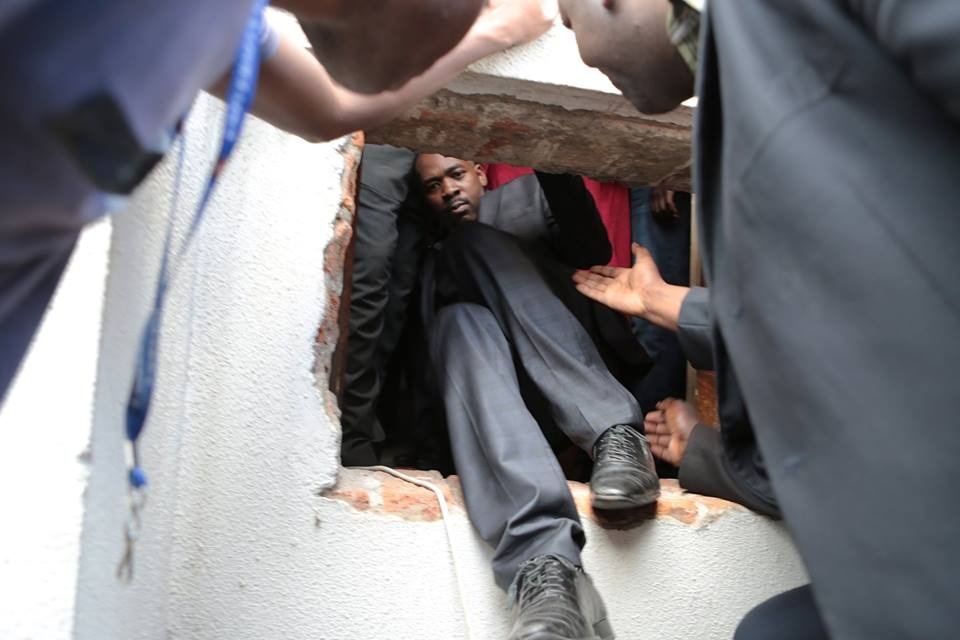At the same time, one of the worst traits about the same democracy is that it allows anyone, no matter their personality and their character flaws, to rise into positions of influence and power - the Movement for Democratic Change (MDC) Alliance’s greatest undoing -Chamisa’s personality and violent nature.
Whilst his yester years as Student Representative Council (SRC) president at Harare Polytechnic can attest to his violent nature, where any dispute was settled by violent demonstrations against those in authority, the same trait followed him as the first youth leader of the then MDC-T and commander of the vanguard.
It’s unfortunate that whilst all the party could offer to the electorate was ‘generational consensus’ as they called it, it was that same trait which cost them votes in the just ended elections – Chamisa’s inexperience and immaturity which lead to the violence which erupted on the first of August after he prematurely declared himself the winner.
Throughout most of recorded history, one of the human race’s biggest problems has been that people who rise into positions of power tend to be precisely the kind of people who should not be entrusted with power.
Once they possess power, they usually devote themselves to entrenching, increasing and protecting their power, with scant regard for the welfare of others, like what befell Zimbabwe after elections, all Chamisa wanted was to bulldoze his way through to the presidency like what he did after Tsvangirai’s death.
Little did he realise that the constitution of the land can’t be swayed to soothe his supporters, and worse off the few youthful gangsters who had made noise on social media over the need for a youthful leader.
This discourse of generational consensus had gathered steam in the last couple of months with the elevation of Nelson Chamisa to the position of MDC-T leader, with most social platforms awash with the discussions of generational renewal and consensus, raising hopes for Chamisa that the electorate was now ready for him - a young President, to his surprise and unwillingness to accept results.
Zanu PF Presidential candidate elections, Emmerson Dambudzo Mnangagwa, retained as President of Zimbabwe garnering 2 460 463 votes (50,8% of the total votes), compared to his 2 147 436 votes representing 44,3% of the votes cast, not to mention the Zanu PF two-thirds in parliamentary seats!
In some quarters, the generational consensus sold him a dummy because the discourse assumes a tug of war between the old and young generation, yet to most, it was simply a defining statement of the need to mainstream youth issues from the periphery to the centre without necessarily changing the political culture and office bearers of political parties.
Apart from Chamisa’s age, MDC failed to realise that the democracy which it was selling was the same trait is now embedded in the new Mnangagwa administration since November 2017, hence leading to the Alliance’s ultimate demise.
My plea to Chamisa is to let bygones be bygones, engulf the spirit of togetherness, for the sake of the nation to move forward. It’s now time Zimbabwe moves on, politically and economically.
Even other Zimbabwean politicians, from the previous Mugabe administration have finally embraced the new Government with former Highfield MP, Psychology Maziwisa twitting, “I had the privilege of congratulating the First Lady this morning and of telling her how proud I am of the spirited campaign that @edmnangagwa put up in this election on behalf of ZANU PF. It is vital that we now look forward to economic progress in peace and unity.”




